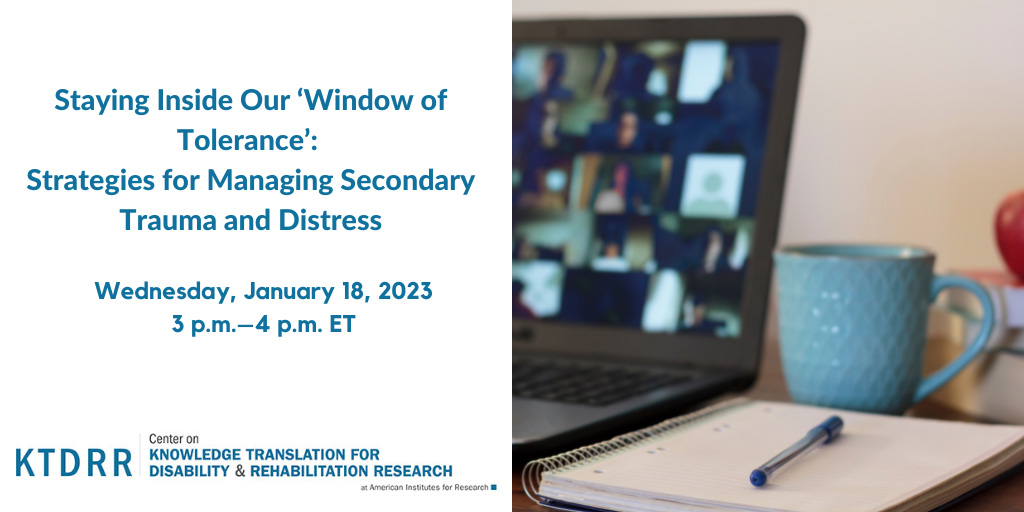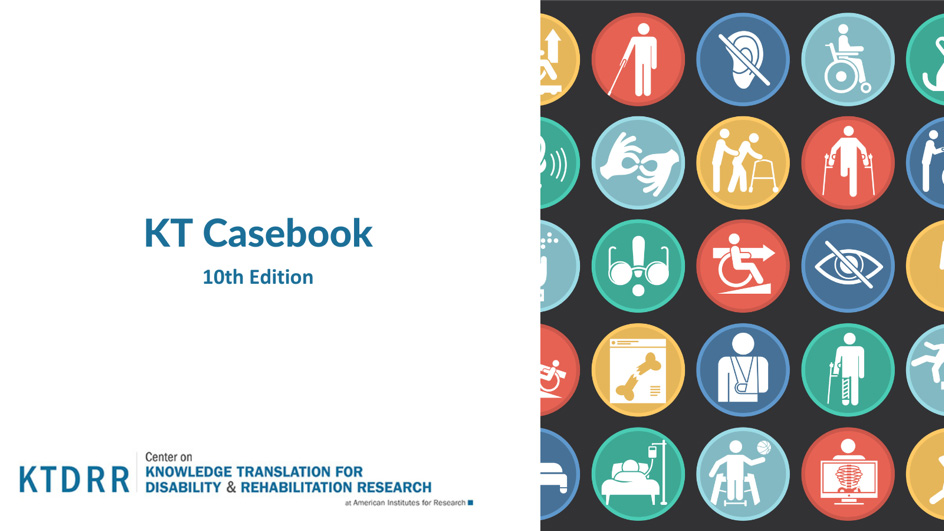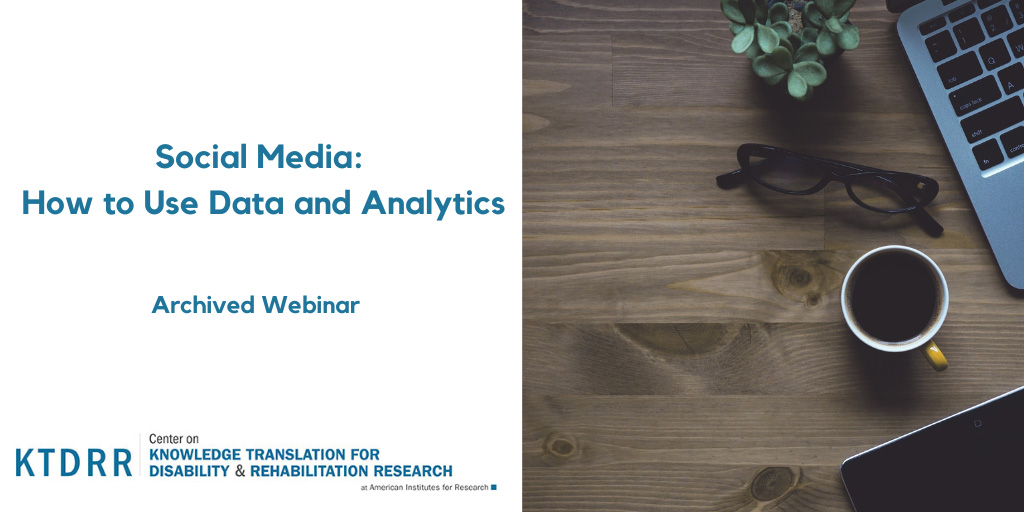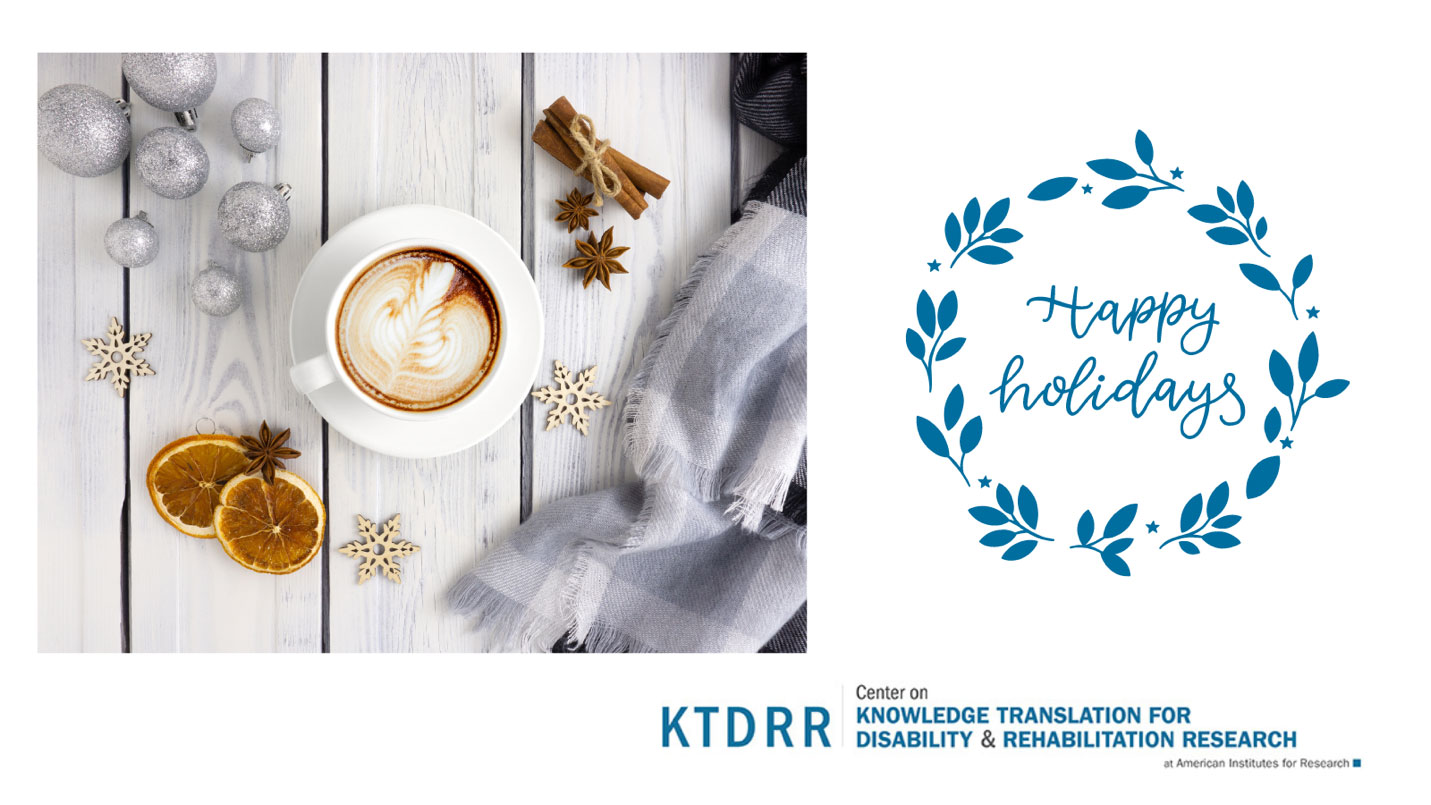Register Now for Webcast on
Secondary Trauma and Distress

The Center on Knowledge Translation for Disability & Rehabilitation Research (KTDRR) is committed to supporting grantees as they engage in equity-oriented research activities. We have heard from some grantees that as they begin or continue longstanding commitments to working with underserved communities, their own research teams sometimes struggle with distress as a result of deep engagement in the issues they learn about in their research. This webcast aims to help team leaders prepare for addressing those needs among their colleagues.
The webcast, “Staying Inside Our ‘Window of Tolerance’: Strategies for Managing Secondary Trauma and Distress,” uses the latest research on secondary traumatic stress, burnout, and compassion satisfaction to provide evidence-informed strategies to understand and respond to workplace stressors, with particular focus on those that teams may experience as they engage in research with communities that have experienced trauma. Central to this discussion is the “Window of Tolerance” framework, which will guide discussions of regulation, dysregulation, and effective coping strategies that can be used in real time to manage distress. Attendees can expect to leave the webinar with a solid working knowledge of distinct types of stress that researchers might experience as well as evidence-informed ways to improve their well-being.
Presenter: Dr. Ginny Sprang, University of Kentucky Secondary Traumatic Stress Innovations and Solutions Center
Discussant: Dr. Allison Taylor, Institute for Community Inclusion, University of Massachusetts Boston
Date: Wednesday, January 18, 2023, 3 p.m.–4 p.m. ET
Registration Link: https://survey.alchemer.com/s3/7112973/Registration-2023-Webcast-on-SecTraumStress
New Edition of the KT Casebook
We are excited to announce the launch of the 10th edition of the KT Casebook. The KT Casebook showcases how NIDILRR grantees are putting innovative, effective, and measured KT strategies into action. This edition has a special focus on KT projects working with rural communities.

The KT Casebook includes the following:
Many thanks to those who submitted entries to this edition of the KT Casebook for an opportunity to showcase your KT activities.
If you are part of a NIDILRR project, please contact us about submitting an entry for the 11th edition of the KT Casebook. Our staff will help draft the entry after meeting with you to discuss your project’s KT activities.
Social Media Webcast Recording Available With Inaugural KT Tip Sheet

Were you busy on November 16 when we aired the live webcast “Social Media: How to Use Data and Analytics”? Cosponsored by the Center on
Knowledge Translation for Employment Research (CeKTER, pronounced “sector”), the webcast presenters were Adam Korengold from the
National Library of Medicine at the National Institutes of Health (NIH) with Jessica Chaiken and Marta Garcia of the National
Rehabilitation Information Center (NARIC). The webcast focused on using data and analytics for understanding and enhancing the
impact of your social media activities. Check out the recording and download presentation materials on our website:
https://ktdrr.org/training/webcasts/webcast79/index.html
This KT Tip Sheet, “Resources for Social Media Data and Analytics,” the first in a new series that the Center on KTDRR will produce twice a year, provides summaries of resources Adam Korengold recommended during the webcast. They are arranged in topical groups: overviews of using data to understand digital users better; story mapping to understand users’ journeys; using data visualization to tell stories about your data; and illustrations of data visualization.
Calling all NIDILRR GRANTEES
KT Update Wants to Hear from YOU!
Do you have any upcoming public meetings, conference notices, articles, reports, or other resources that you would like the Center on KTDRR to share with the broader community? If so,
let us know! Please email Felice Trirogoff (ftrirogoff@air.org) with a brief description (150 words or less), as well as
any related and accessible images, relevant URLs, and grantee contact information.

|



